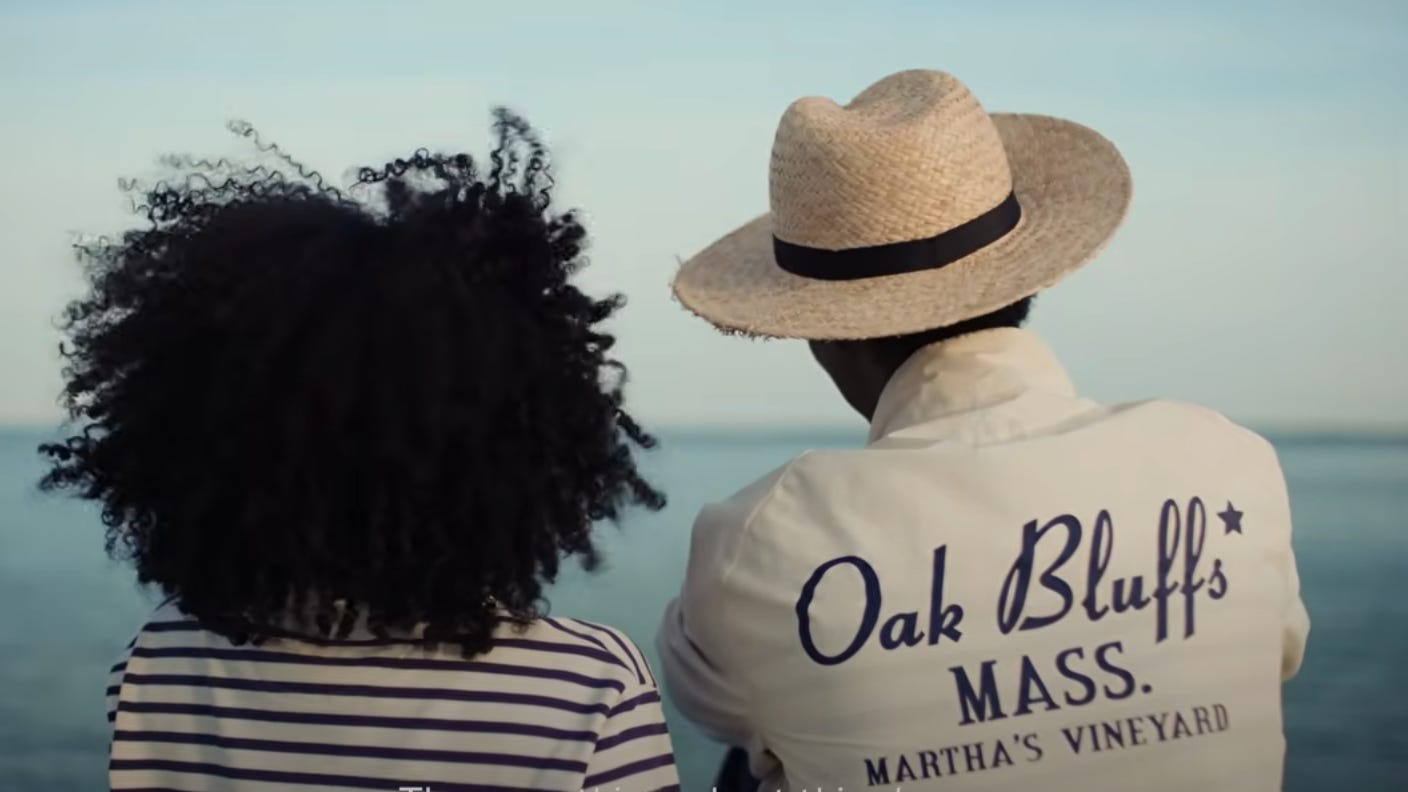The Uncomfortable Truth of Ralph Lauren’s Oak Bluffs
Prompt No. 58: A Make-Believe World Gets a Makeover
“There is a beauty, a transformation, as it were, a regeneration, that takes place in the physical make-up of a young man or young woman who gets into the habit of living on the high side of life rather than on the lower side.” - Booker T. Washington
Last week, Ralph Lauren released the Polo Ralph Lauren for Oak Bluffs collection, a campaign honoring the African-American life and culture located in one of Martha’s Vineyard’s six towns. To authentically showcase Oak Bluffs’ “cultural significance” the brand partnered with historically Black colleges Spellman and Morehouse, whose faculty, students, and alumni have called the vibrant coastal town home, or their home-away-from-home for countless summers. As soon as the promotional email landed in my inbox, I skimmed the collection knowing I would not spend a dime. I do not have any connection to the town, island, or the colleges. If I did, I would signal my affiliation in a more substantiated way by not wearing apparel related to the island or even dressing to impress. Locals always dress down. Still, as I clicked through the collection, I knew it would be divisive for one reason: its obvious proximity to whiteness.
Perhaps in any other political climate that friction would go unnoticed, but Black excellence has taken some tremendous blows. The first came in the nation’s refusal to elect a Black and South Asian woman – an alum of a historically black university – whose leadership would have maintained some semblance of our already strained democracy. The remaining blows came as a result of that election; 300,000 Black women pushed out of the workforce, the expansion of admissions data to the Department of Education to ensure colleges and universities are not taking race and gender into account in their acceptance, and severe cuts to federal funding for Historically Black Colleges and Universities (HBCUs). The losses have sent a resounding message to Black women that not only has the U.S. made little progress in dismantling its deeply racist and sexist history, but the so-called allies committed to helping make that progress are profoundly ineffectual. It also sent a far quieter message to those willing to hear it: Black excellence will not save us. As a matter of fact, it might be our greatest threat.
Keep reading with a 7-day free trial
Subscribe to A Sunday Journal to keep reading this post and get 7 days of free access to the full post archives.



